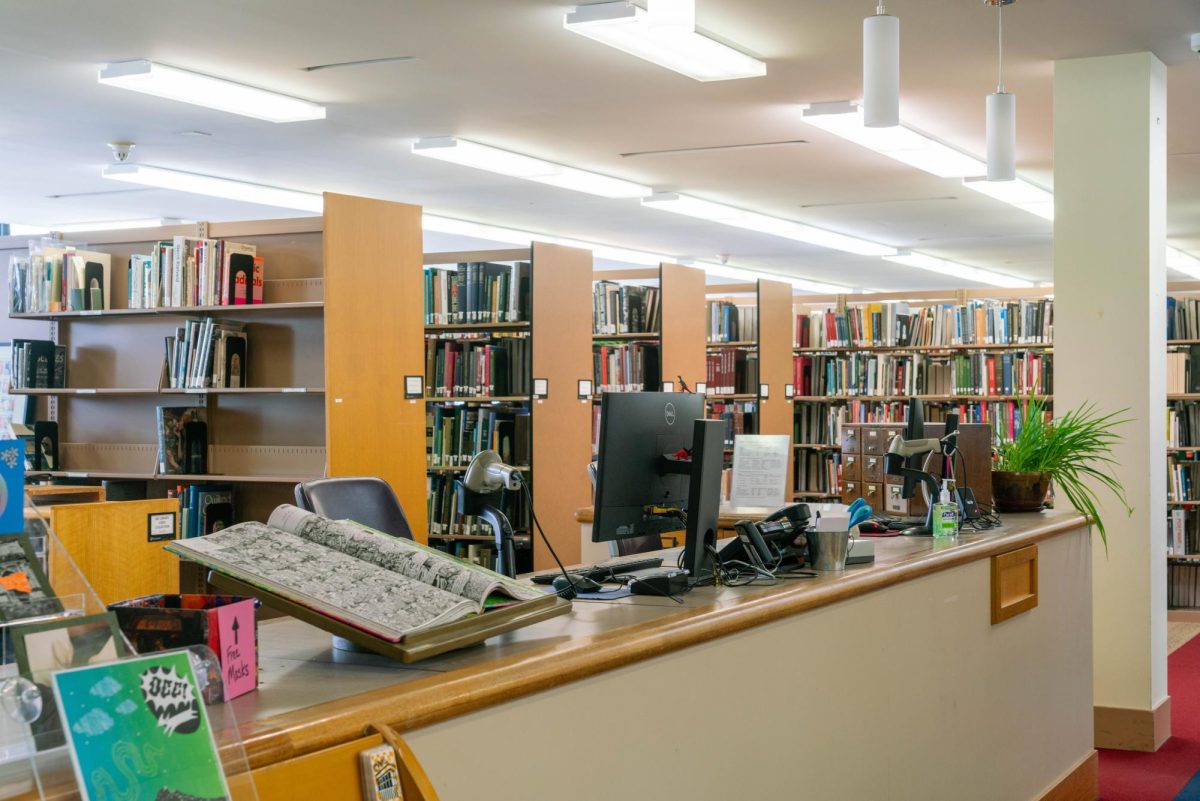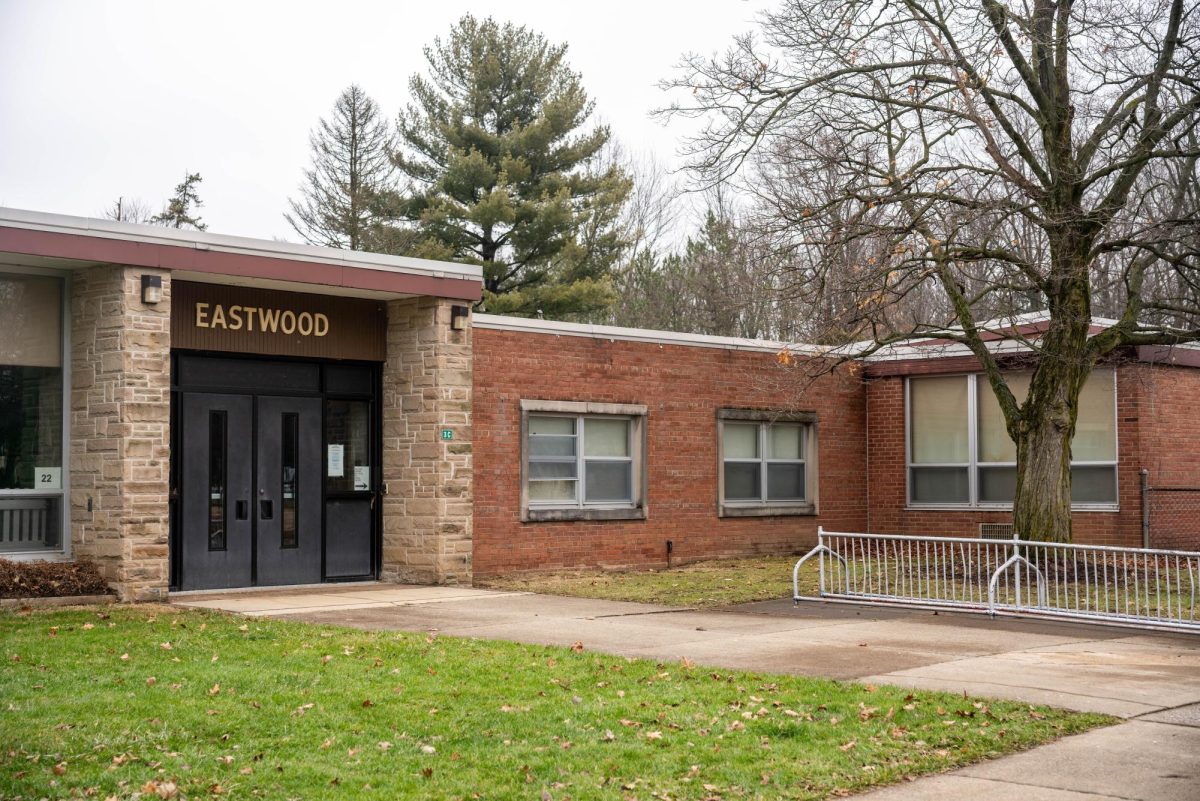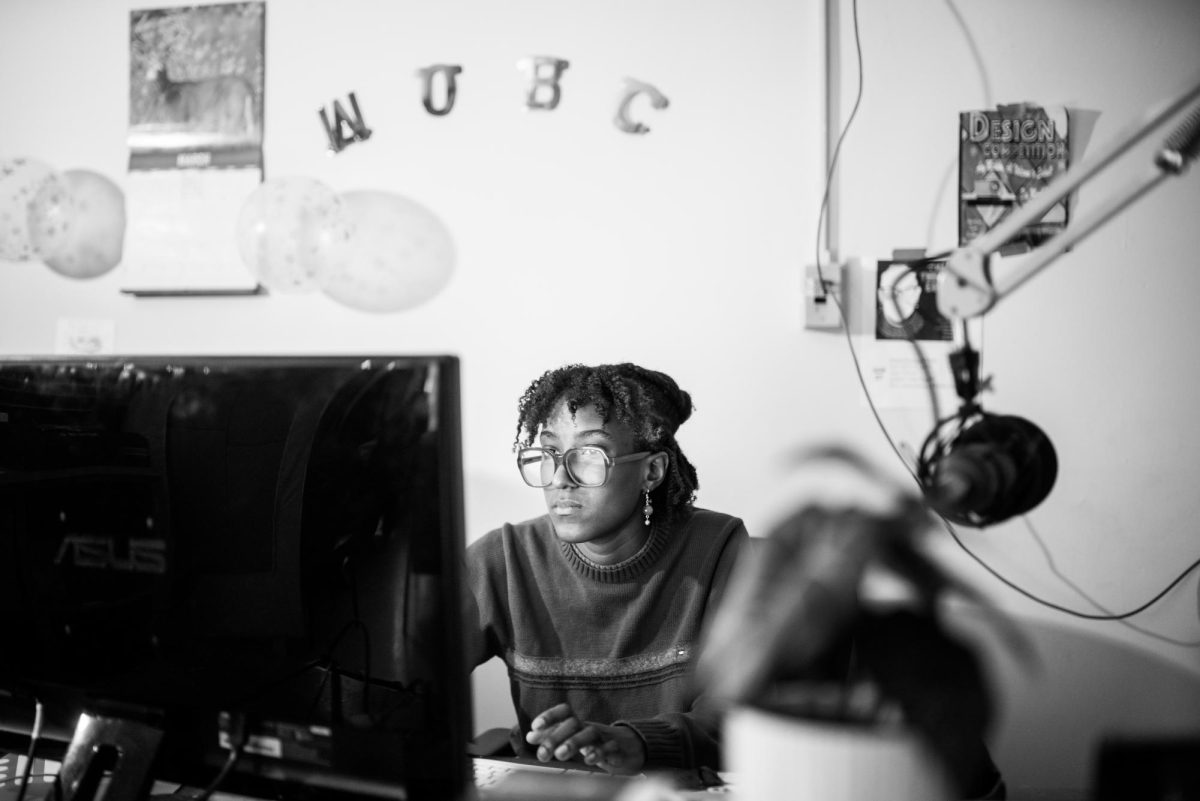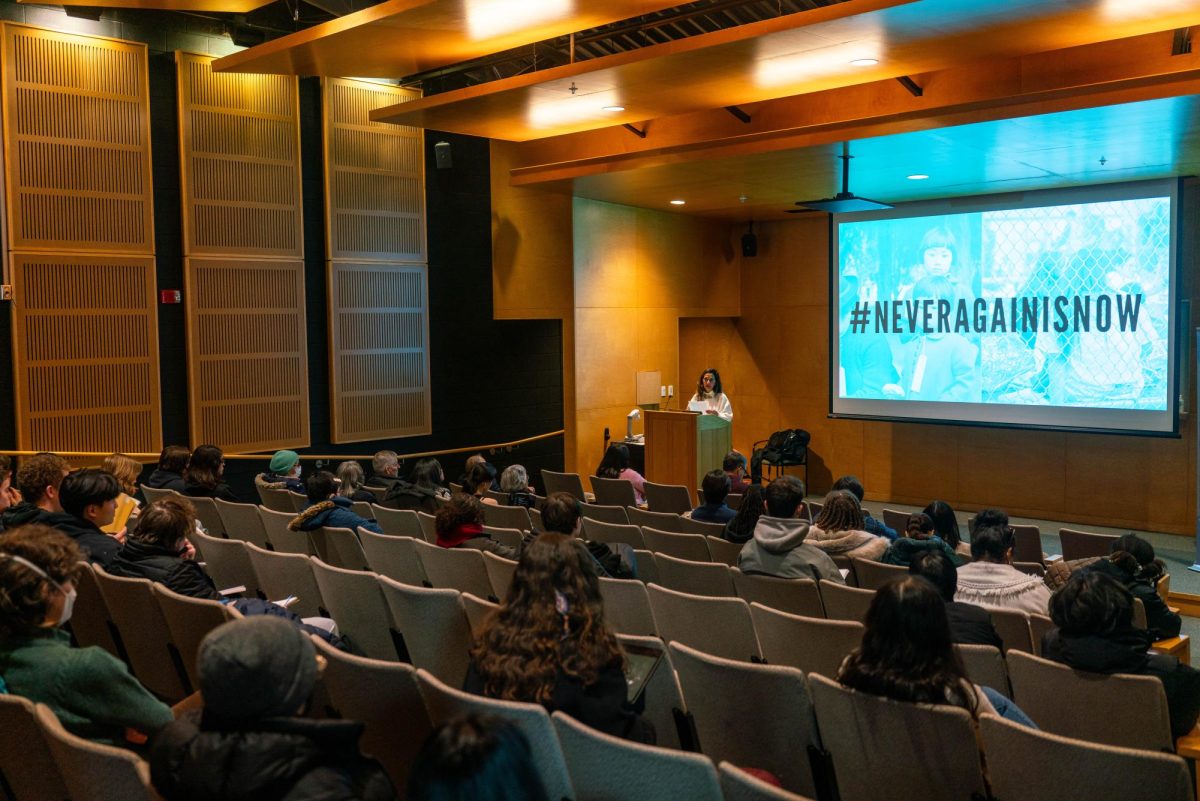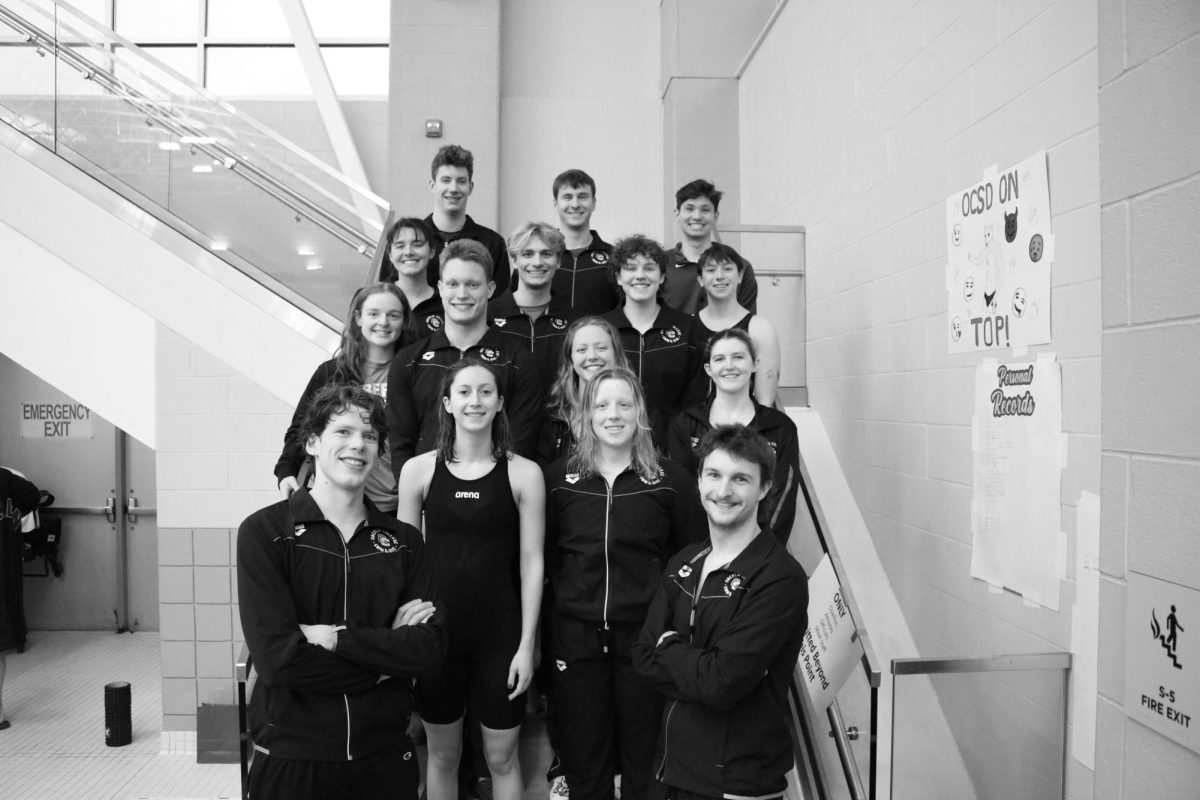SOA Watch Sponsors Re-Envisioning Solidarity Workshop
March 2, 2012
School of the Americas Watch sponsored a Re-Envisioning Solidarity Workshop at Oberlin on Tuesday night led by Becca Polk, student and youth coordinator of SOA Watch. Polk screened a short documentary, Somos Una America, and held a discussion afterward which dealt with issues such as ways to educate more people about massive human rights violations and current activism that the SOA Watch is involved in. Overall, Polk drew attention to the need for a cultural shift in the United States that could lead to solidarity between the Americas and could stop the complicated problems of U.S. militarization.
College sophomore Ian Zimmerman, one of the students who organized the event, became involved with School of the Americas Watch last year.
“I was excited when Becca Polk contacted me in early February letting me know that she would be speaking around the Midwest,” said Zimmerman. “Though Oberlin has very progressive students, I’ve found that many have either not heard of [Western Hempisphere Institute for Security Cooperation]/SOA or, if they have, they don’t know much about it. Therefore, I hoped that bringing Becca to campus … would spark interest in actively opposing the continued U.S. militarization of Latin America.”
The evening began when Polk passed around pieces of paper with facts about the School of the Americas, dubbed “School of Assassins” by SOA Watch. The SOA, renamed the Western Hemisphere Institute for Security Cooperation, is a military training center located at Fort Benning, GA, where thousands of Latin American soldiers are trained to orchestrate killings and suppress popular movements once they return to their own countries. Polk says that in addition to the inhumane tactics the soldiers learn, they are also exposed to the United States’ consumerist society, and because of this, feel allegiance to the U.S. and can more easily murder and torture their fellow citizens. Through these means, the United States is able to “promote democracy” and expand trade to facilitate economic growth. Polk says that many citizens are not aware that this military school is funded by U.S. tax dollars and that by paying taxes they are allowing these atrocities to take place in the Americas.
After Polk gave the attendees some essential background information, she showed the documentary. The audience was told to consider what it means to create a movement against militarization while watching the film. The documentary showed citizens of countries such as Colombia, Venezuela and Mexico, and the ways in which they have been affected by the soldiers who trained at the School of the Americas.
Students with extremely varied backgrounds and with different amounts of knowledge about School of the Americas and the SOA Watch organization contributed to the discussion following the film.
“[Before the event], I honestly never heard of the School of the Americas,” said College first-year Monica Monsalve. “I was so surprised at the number of atrocities that the graduates from this institution have done throughout Latin America. Being from Colombia, I was especially concerned that so many Colombian youth are being recruited for the School of Americas.”
One of the main points of discussion after the screening was the potential need for a cultural shift in the United States. One student offered the point that because we are not always explicitly taught to respect all cultures in the same way, we can feel detached from the people of other nations and therefore feel a separation when horrible crimes are committed in these places. Additionally, the idea that the United States’ media only portrays the country in a positive light was brought up. Some students argued that this was why there is such limited knowledge about issues such as the School of the Americas.
College first-year Karlyn Gehring said she was surprised by how few people at the discussion had heard about the School of the Americas prior to the event.
“This is scary to think about, because it means that U.S. citizens are helping to fund the school through taxes without even knowing that the school exists, let alone the type of soldier brutality it trains,” said Gehring.
As the student and youth coordinator of SOA Watch, Polk travels around the country teaching workshops in high schools and colleges that promote leadership development and help to send students to protests. She explained the importance of making connections with campuses because as students graduate every four years, more and more people can be exposed to the issues and become involved in important ways. She also hopes to connect students in Latin America with students in North America so that solidarity can be achieved among youth wanting to take action. She, along with the other members of SOA Watch, have traveled to several Latin American countries and obtained solidarity statements from each of them. Students seemed genuinely interested in the movement when Polk passed around a list where students could write their email addresses to receive more information, and the spots quickly filled up.
Zimmerman was thrilled by the success of the workshop and said that he thinks “there is definitely a space for on-campus groups not typically associated with activism to play a role in building a broad coalition of students opposed to continued U.S. militarization.” He mentioned religious groups, Oberlin in Solidarity with El Salvador, and La Alianza Latina as potential sources of support.
Zimmerman is hoping to lead a delegation of Oberlin students to Washington, D.C., to attend SOA Watch’s April Days of Action, where thousands of anti-militarization activists from all over the Americas will come together from April 14 to 17, and he encourages any interested student to attend.





